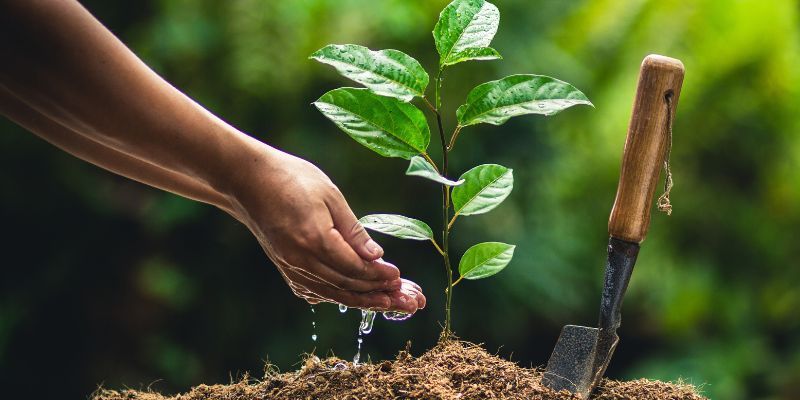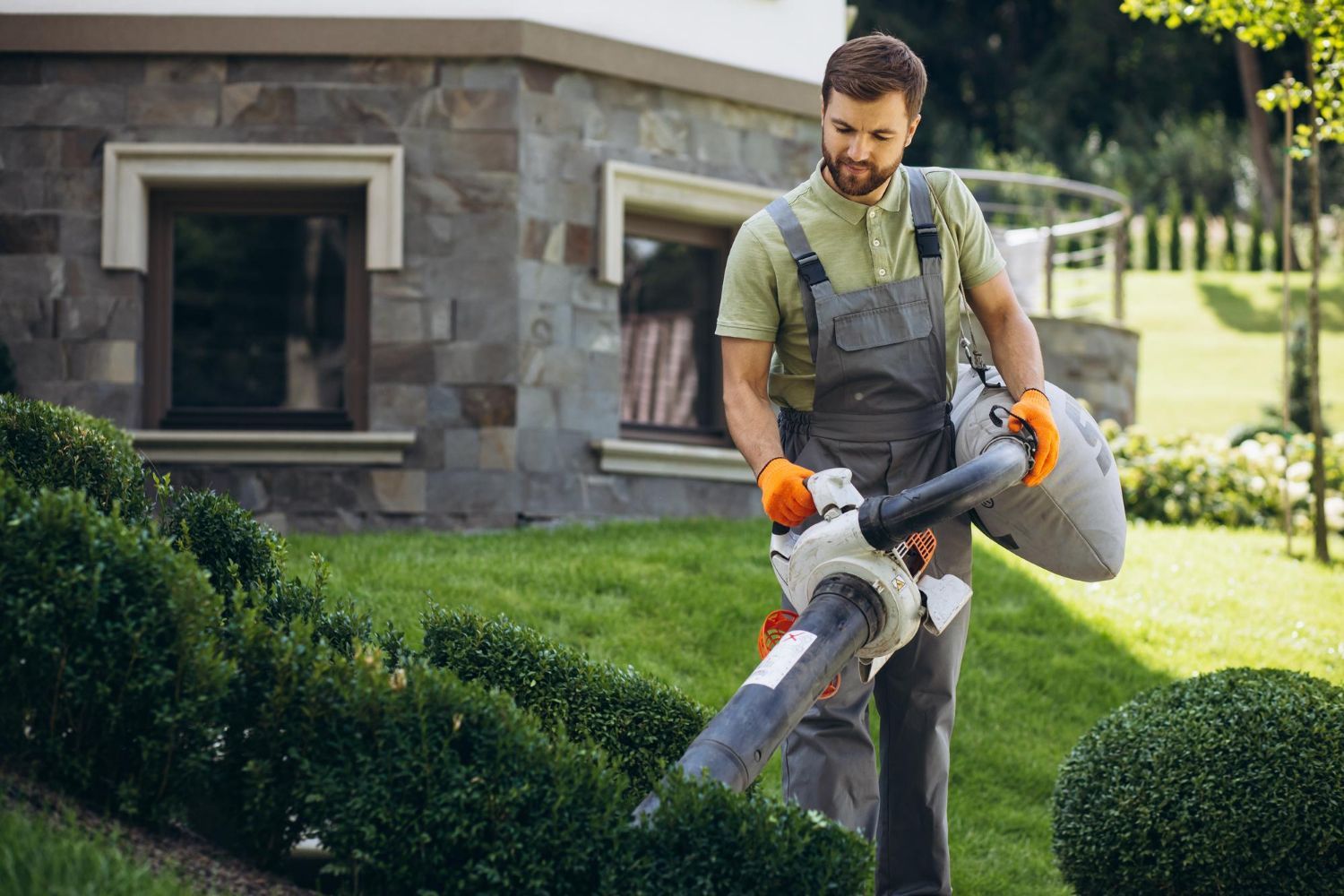Soil Needs for Fruit Trees: Your Guide to Growing Fruits at Home

Fruit trees are a rewarding addition to any garden, but their success starts beneath the surface. Healthy soil provides the foundation for productive and thriving fruit trees and understanding the ideal soil composition and structure can make a significant difference in your trees’ health and fruit production. Here’s what fruit trees need to grow their best.
Fruit Tree Soil Needs Overview
As a brief overview, fruit trees thrive in soil that is:
- Well-drained : Roots cannot tolerate sitting in water for long periods, which can lead to root rot. Sandy loam or loamy soil is ideal because it retains enough moisture while allowing excess water to drain.
- Nutrient-rich : Healthy fruit trees require a balance of nutrients like nitrogen, phosphorus, and potassium. Organic matter like compost or aged manure can enhance the soil’s fertility.
- Slightly acidic to neutral : Most fruit trees prefer a soil pH of 6.0 to 7.0. This range ensures the nutrients in the soil are readily available for absorption.
Below, we explain these factors in greater detail.
Ideal Soil Type and Composition for Fruit Trees
The best soil for fruit trees balances drainage, fertility, and structure. Fruit trees prefer soil that is well-drained but retains enough moisture to keep roots hydrated. Sandy loam or loamy soils are ideal as they provide this balance. Heavy clay soils, on the other hand, can hold too much water, leading to root rot, while sandy soils may drain too quickly, leaving roots dry.
Promoting Good Drainage
Well-draining soil prevents waterlogged roots which can suffocate roots and lead to root rot and other fungal diseases. If your soil has a high clay content, you can alleviate drainage issues by planting trees on a slight mound or incorporating organic matter to loosen the soil and allow better water flow.
Soil Aeration for Root Growth
Roots need oxygen to grow and absorb nutrients. Compact soils can suffocate roots, so loosening the soil to a depth of at least 12-18 inches before planting is a good practice. Adding gypsum to clay-heavy soil can also help improve aeration without altering the pH.
Avoid compacting the soil around the root zone by minimizing foot traffic and heavy equipment in these areas. Adding organic matter annually replenishes nutrients and keeps the soil fertile.
Nutrient Requirements for Fruit Trees
Nutrient richness is possibly the most important factor to consider when planting fruit trees. Especially since they produce food, they need soil filled with essential nutrients for healthy growth and fruit production. This can be achieved by adding organic matter such as compost or aged manure. Not only does this add nutrients but it also improves the soil structure, making it easier for roots to expand.
Key nutrients include:
- Nitrogen (N) : Encourages leafy growth.
- Phosphorus (P) : Promotes root development and flowering.
- Potassium (K) : Enhances fruit quality and disease resistance.
Adding compost, aged manure, or a balanced organic fertilizer can provide these nutrients naturally. Avoid over-fertilizing, especially during the early growth stages, to prevent stress on young trees.
Organic matter options include:
- Compost: Provides a nutrient-rich boost.
- Leaf mold: Improves water retention and soil texture.
- Aged manure: Adds nitrogen and other essential nutrients.
The Role of pH in Soil Health
Soil pH is a key factor that affects nutrient availability, and healthy soil requires regular care. Testing your soil every one to two years will ensure pH levels and nutrient content are optimal. Most fruit trees thrive in slightly acidic to neutral soil with a pH of 6.0 to 7.0.
If the soil is too acidic or too alkaline, certain nutrients may become less accessible to the tree roots. Adjustments can be made with lime to raise the pH or sulfur to lower it.
Tips for Maintaining Healthy Soil for Fruit Trees
- Regular Soil Testing : Test your soil every 1-2 years to monitor pH and nutrient levels. Adjust with lime, sulfur, or fertilizers as needed.
- Mulching : Mulching around the base of the tree with materials like wood chips or straw helps regulate soil moisture, temperature, and suppress weeds, but keep the mulch a few inches away from the trunk to avoid pests and rot.
- Avoid Compaction : Keep heavy equipment and foot traffic away from the root zone to maintain soil structure.
Grow Thriving Fruit Trees with Breakaway Landscaping
Healthy soil is key to growing strong, productive fruit trees. By focusing on proper soil composition and ongoing care, you can enjoy abundant harvests for years to come. For expert help with planting and landscaping, contact Breakaway Landscaping today to get started.
The post Soil Needs for Fruit Trees: Your Guide to Growing Fruits at Home appeared first on Breakaway Landscaping.











